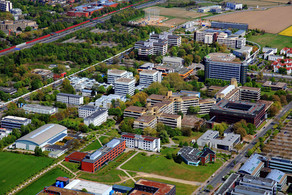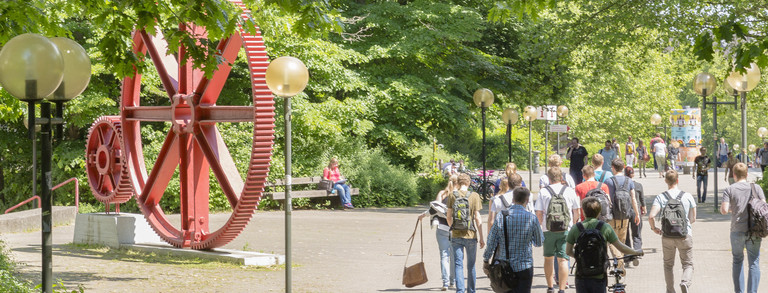Seed Swap at the Emil-Figge-Library
Since March 2022, a sustainability corner has been created in the university library of TU Dortmund . There is a seed library there where seeds that are seedproof can be exchanged and borrowed. Borrowing in this case means that the yields of the seeds are to be returned to the cycle of the seed library in the form of new seeds.
Since mid-August 2023, the sustainability corner with the seed exchange box is located in the Emil-Figge-Library. Comfortable sofas invite you to quietly browse through literature on the topic of sustainability.
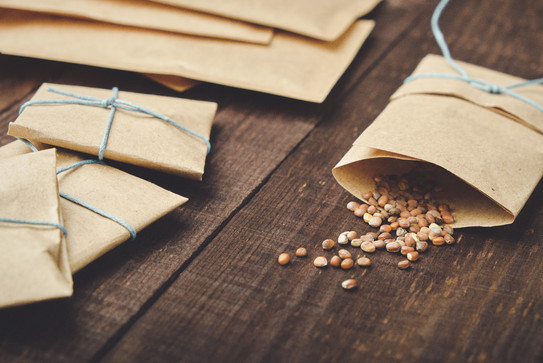
Seeds - the seed exchange library of TU Dortmund
The seed exchange library is for everyone who loves plants and has already discovered or would like to discover their green thumb.
According to the motto "our environment should become more colorful" we are looking forward to a lively participation of newcomers, occasional gardeners and people with or without an innate green thumb.
Important notes:
- Seed swapping and the seed swap box are a non-profit and non-commercial activity.
- It is not allowed to exchange varieties that are noted as protected by the Federal Office of Plant Varieties.
- It is forbidden to sell the results (crops and seeds) from the exchange.
- Everything is done at your own risk - only what is absolutely safe and edible should be consumed.
- Some vegetables are not suitable for raw consumption. Beans, for example, are poisonous raw.
- Seeds of unprotected cucurbits (cucumber, pumpkin, zucchini) must not be exchanged. If unintentional crosses occur, they may be unpalatable or toxic.
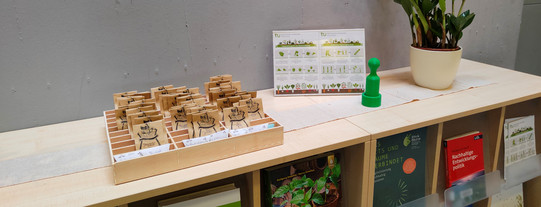
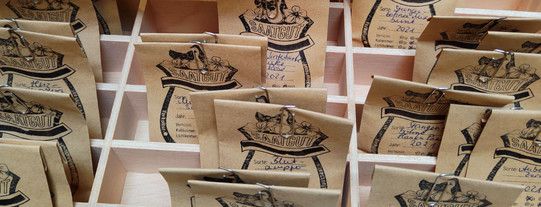
Seed library - questions and answers
In the sustainability corner of the Emil-Figge-Library there is a wooden box - the seed exchange box. There you can sort the seeds that are to be exchanged and search for other varieties that are to be grown. Unfortunately, small seed bags cannot be provided. However, these can be easily made yourself. Folding instructions can be found below. Next to the box is a stamp for the bags, so they can be labeled with the most important information about the variety and cultivation.
For a good functioning of the seed library, please take only as much seed as is needed and can be grown on the available garden space. Then others can still discover great varieties.
Just started your gardening career? Then you are welcome to borrow your first seeds with the aim of bringing back fresh seeds at the end of the season.
Already harvested your own seeds? Then seeds can be exchanged in a ratio of 1:1 or surplus seeds can be donated.
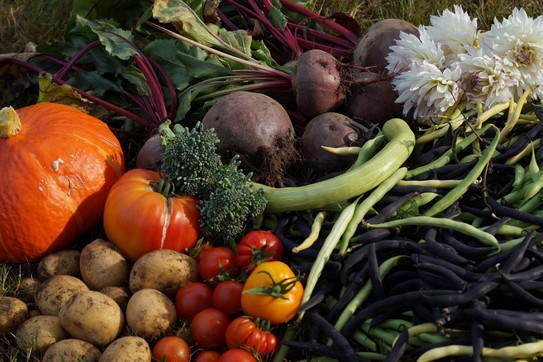
Due to current legislation and the heavy use of nature by humans, biodiversity is being increasingly thinned out. This also affects the diversity of crops that we eat every day.
Increasingly, crop varieties are being lost, as well as knowledge about cultivation and seed conservation. By exchanging seed-proof seeds, we jointly contribute to the preservation of knowledge and biologically valuable varieties and diversity. It also enables new breeding and multiplication of crops.
All TU members are invited to swap seeds with each other, borrow seeds, grow seeds, or garden together.
Seed propagation depends on what plant it is. The seeds of a bell pepper and also a bean can be easily identified as seed, but how do you get seed from a carrot, for example?
Our seed library is all about exchanging and growing seeds with each other. Literature and information on seed collection can be found on the shelves next to the seed swap box. We are happy if these are used and then also won seeds, after the harvest again for exchange in the seed library is provided.
Did the cultivation not work out or no seed can be returned? Do not worry, even if it is called seed library: There is no loan receipt and is based on trust and the idea of sharing and gardening.
The (propagated) seeds can be packed in self-folded seed bags. Folding instructions for the seed bag can be downloaded here.
In the exchange box, only seeds that are seedfast are to be exchanged. "Seed-stable" is the name given to varieties that can be propagated by traditional methods such as pollination by wind or insects. In doing so, they retain their variety-specific characteristics such as flavor, size or color. Seed-stable seeds can be used again and again if propagated correctly and produce the same plant.
Unlike seed-stable varieties, most varieties on the market are "hybrids." These are bred by inbreeding in one's own line and subsequent crossing. This gives them special properties, for example particularly large fruits or pest resistance. The resulting daughter generation is also called F1 hybrid. It has the desired properties particularly pronounced. However, the effect is lost in the following generation, the variety diverges again, it is not stable in its properties. So it can happen that the fruits of seeds of a F1 hybrid have different colors, sizes and tastes.
Hybrid seeds can often be recognized by the imprint on the package, marked by "F-Hybrid" or "F1". Seed resistant seeds are usually not specially marked.
Plants take up different amounts of space and also yield very different amounts of harvest. Depending on the type of plant, in a vegetable garden the seeds tend to be grown individually, in rows or mti other methods. Some pointers so that after sowing does not remain kilos of seeds:
- Tomatoes and peppers: 3-4 plants perm².
- Squash, zucchini, melons, cucumbers: 1 plant per m².
- Bush beans: 15 seeds per meter (row sowing)
- pole beans: 8-10 seeds for one thick pole
- Carrots: 50 seeds per meter (row sowing)
- Broccoli, cauliflower, red cabbage, kale: 4-6 plants per m²
- Parsnip and beet: 7-10 plants per meter (row sowing)
- Garlic and onions: 6-10 plants per meter (row sowing).
Crop yields are extremely variable. One seed of a carrot produces only one carrot, whereas one seed of a zucchini produces a plant that can supply a small household with zucchinis for an entire season. So it's worth considering beforehand how much space you have in your garden or on your balcony and what plants you want to put there. Seeds lose their germination power after some time, in some plants after only one year. Therefore, smaller seed quantities are more suitable, because they are actually used up. It also leaves more to swap and share.
The Sustainability Office provides a sowing calendar. The times of sowing are sorted by variety and season. The calendar also notes whether the seeds need to be pre-sown in a pot at home or whether they can be sown directly in the open.
For a safe seed harvest, please note the following:
- Seed bags should be labeled as accurately as possible (with species and variety) - every recipient is happy to receive sowing instructions and tips.
- Only seeds that have been grown without the use of pesticides, pesticides and artificial fertilizers should be used.
- The seeds should be cleaned from plant residues and dried well for a few days in the open.
- Only seed-proof (organic) varieties - no offspring of F1 hybrids should be used. F1 hybrids are targeted crosses that cannot be grown as pure varieties.
- Seed swap and the seed swap box is a non-profit and non-commercial action.
- It is not allowed to exchange varieties that are noted as protected by the Federal Office of Plant Varieties.
- It is forbidden to sell the results (crops and seeds) from the exchange.
- Everything is done at your own risk - only what is absolutely safe and edible should be consumed.
- Some vegetables are not suitable for raw consumption. Beans, for example, are poisonous raw.
- Seeds of unprotected cucurbits (cucumber, pumpkin, zucchini) must not be exchanged. If unintentional crosses occur, they may be unpalatable or toxic.

